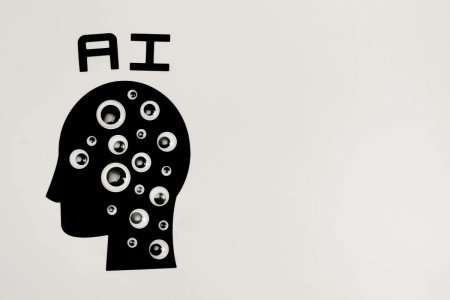When AI goes too far: Sexualized content mimicking Down syndrome sparks outrage
By
Veronica E.
- Replies 0
Technology moves fast—but sometimes, it moves too fast for its own good.
A new online trend involving artificial intelligence filters has left many people shocked, hurt, and questioning how we draw the line between creativity and cruelty.
At The GrayVine, we aim to explore not just the promise of innovation, but its impact—especially on vulnerable communities.
What’s happening right now on social media is more than a passing trend.
It’s part of a bigger conversation about ethics, empathy, and how we treat one another online.

Across social media platforms, some creators have begun using AI tools to digitally alter their appearance to resemble individuals with Down syndrome.
These videos are often paired with attention-grabbing captions and, in many cases, link to paid content through sites like OnlyFans—a subscription-based platform where creators share exclusive material, sometimes adult in nature—or private messaging groups.
While the individuals in these videos do not actually have Down syndrome, they are using filters to create that illusion—often for shock value or profit.
Experts say this trend is being driven by money, attention, and a lack of accountability.
These videos tap into a niche market for views and subscriptions, but they do so at the expense of people with real, lived experiences.
“It’s a deeply problematic form of digital impersonation,” said Dr. Amy Gaeta of the University of Cambridge.
“It both sexualizes and ridicules people with disabilities—while erasing their humanity.”
In short, it's not just offensive—it's dangerous.
While it may seem like "just the internet," the harm caused by this content is very real:
Kandi Pickard, President and CEO of the National Down Syndrome Society, made it clear: “Individuals with Down syndrome are the only people who should be speaking about what it’s like to have Down syndrome.”
Many advocacy groups agree.
They're calling on tech platforms to crack down on harmful filters and ensure their tools aren’t being used to exploit people with disabilities.
This issue goes beyond one filter or one platform.
According to recent research, over 98% of deepfake videos online are pornographic in nature, and many feature non-consensual content.
It’s part of a growing problem in the digital age—where AI can be used to manipulate, deceive, or dehumanize.
“We’re not just seeing a tech shift—we’re watching a cultural one,” said Dr. Emily Springer, an expert on responsible AI.
“And it’s happening in real time.”

Even as everyday users, we can help push for change. Here are a few meaningful steps:
At The GrayVine, we believe technology should build empathy, not break it.
Together, we can work toward a safer, more respectful digital world.
Read next: Discover how computers are changing conversations–What does this mean for the future?

Have you come across this kind of content online? How do you think social media companies should respond? We welcome your thoughts in the comments—this is a conversation that affects all of us.
A new online trend involving artificial intelligence filters has left many people shocked, hurt, and questioning how we draw the line between creativity and cruelty.
At The GrayVine, we aim to explore not just the promise of innovation, but its impact—especially on vulnerable communities.
What’s happening right now on social media is more than a passing trend.
It’s part of a bigger conversation about ethics, empathy, and how we treat one another online.

Advocates are speaking out against the misuse of AI filters that mimic disabilities, calling for greater accountability and ethical safeguards. Image Source: Pexels / Tara Winstead.
What’s going on?
Across social media platforms, some creators have begun using AI tools to digitally alter their appearance to resemble individuals with Down syndrome.
These videos are often paired with attention-grabbing captions and, in many cases, link to paid content through sites like OnlyFans—a subscription-based platform where creators share exclusive material, sometimes adult in nature—or private messaging groups.
While the individuals in these videos do not actually have Down syndrome, they are using filters to create that illusion—often for shock value or profit.
Why is this happening?
Experts say this trend is being driven by money, attention, and a lack of accountability.
These videos tap into a niche market for views and subscriptions, but they do so at the expense of people with real, lived experiences.
“It’s a deeply problematic form of digital impersonation,” said Dr. Amy Gaeta of the University of Cambridge.
“It both sexualizes and ridicules people with disabilities—while erasing their humanity.”
In short, it's not just offensive—it's dangerous.
Also read: A groundbreaking medical discovery is making waves—could this be the next big leap in medical innovation?
Why this matters beyond the screen
While it may seem like "just the internet," the harm caused by this content is very real:
- It spreads misinformation: Viewers may walk away with distorted, harmful ideas about people with Down syndrome.
- It increases risks: Women with disabilities already face high rates of abuse. Content like this can make them even more vulnerable.
- It silences real voices: When able-bodied individuals mimic a disability for views, it pushes aside the stories of those who live with it every day.
- It erodes trust online: As AI technology improves, it becomes harder to tell what's genuine—making exploitation easier and accountability harder.
Also read: Whoopi Goldberg blasts deceptive AI ad—how to spot this unnoticeable scam
What do advocates say?
Kandi Pickard, President and CEO of the National Down Syndrome Society, made it clear: “Individuals with Down syndrome are the only people who should be speaking about what it’s like to have Down syndrome.”
Many advocacy groups agree.
They're calling on tech platforms to crack down on harmful filters and ensure their tools aren’t being used to exploit people with disabilities.
Also read: AI clones daughter's voice in chilling scam – Could your family be next?
The broader concern with AI and ethics
This issue goes beyond one filter or one platform.
According to recent research, over 98% of deepfake videos online are pornographic in nature, and many feature non-consensual content.
It’s part of a growing problem in the digital age—where AI can be used to manipulate, deceive, or dehumanize.
“We’re not just seeing a tech shift—we’re watching a cultural one,” said Dr. Emily Springer, an expert on responsible AI.
“And it’s happening in real time.”

Some videos like this one use AI filters to digitally mimic Down syndrome for attention or profit. Image Source: YouTube / The Damage Report.
Also read: Experts reveal timeline for technology to surpass human intelligence—are you prepared?
What can we do?
Even as everyday users, we can help push for change. Here are a few meaningful steps:
- Report what you see: Most platforms allow you to flag harmful or offensive content.
- Amplify real voices: Support creators with disabilities who are sharing their experiences—not those imitating them.
- Educate yourself and others: Understanding the real stories behind Down syndrome helps break harmful stereotypes.
- Advocate for accountability: Encourage tech companies and lawmakers to create safeguards against AI misuse.
At The GrayVine, we believe technology should build empathy, not break it.
Together, we can work toward a safer, more respectful digital world.
Read next: Discover how computers are changing conversations–What does this mean for the future?
Key Takeaways
- Some social media users are using AI filters to make themselves appear as though they have Down syndrome, often pairing the content with sexual or suggestive themes.
- Disability advocates and ethics experts have condemned the trend as exploitative and harmful, calling for stronger regulations and platform accountability.
- This type of content increases risks for real people with Down syndrome, especially women, who already face higher rates of abuse.
- Experts stress the importance of elevating authentic voices, reporting harmful content, and demanding responsible AI practices from tech companies.
Have you come across this kind of content online? How do you think social media companies should respond? We welcome your thoughts in the comments—this is a conversation that affects all of us.






